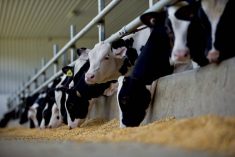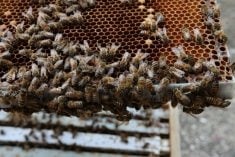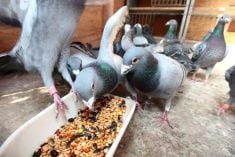Ongoing surveillance of Canada’s wild birds has turned up the country’s first-ever case of highly pathogenic H5N8 avian flu, in a duck carcass at a British Columbia bird sanctuary.
The Canadian Food Inspection Agency on Friday reported the case to the World Organization for Animal Health (OIE), noting such a detection in wild birds “should not disrupt trade between member countries” according to OIE guidelines.
The virus, found in an American wigeon carcass at a wild bird sanctuary near Abbotsford, is a “wholly Eurasian” H5N8 and “very similar” to the H5N8 isolated from a gyrfalcon found in Washington state in December last year, CFIA said.
Read Also

U.S. not ready to lift Mexican cattle ban over screwworm, Agriculture Secretary Rollins says
The U.S. is not yet ready to reopen its border to Mexican cattle amid an outbreak of the flesh-eating New World screwworm parasite, Agriculture Secretary Brooke Rollins said, but she is pleased with Mexico’s efforts to contain the pest.
CFIA emphasized this is the first report of a high-path H5N8 virus in Canada and the strain has not yet been found in commercial poultry anywhere in the country.
Samples from the duck carcass were taken in early February as part of the B.C. government’s ongoing surveillance and arrived for testing at CFIA’s national lab in Winnipeg on March 25. The virus was confirmed and sequenced in the first two weeks of April, the agency said.
According to Ducks Unlimited, the American wigeon is an early spring migrant and breeds further north than any other dabbling duck, other than the northern pintail. Wigeons breed throughout northern Saskatchewan, Alberta, Manitoba, Alaska and the Northwest Territories.
American wigeons’ diet is considered more vegetarian than that of any other dabbling duck, at 97 to 100 per cent plant matter during non-breeding periods.
The wigeon is an “opportunistic” feeder during migration and wintering, according to DU. Animal matter makes up 18 to 41 per cent of the wigeon’s diet during breeding season. — AGCanada.com Network












